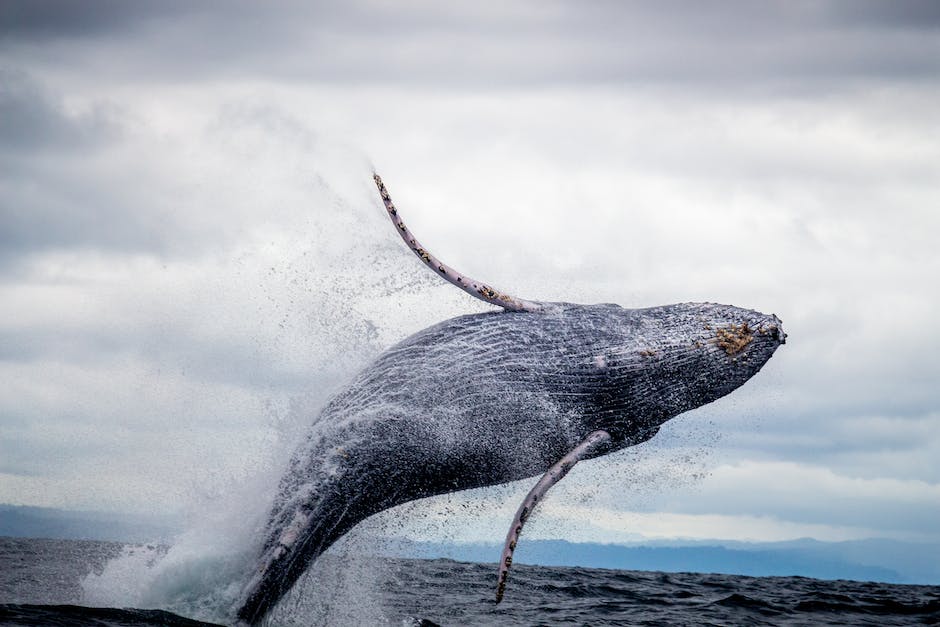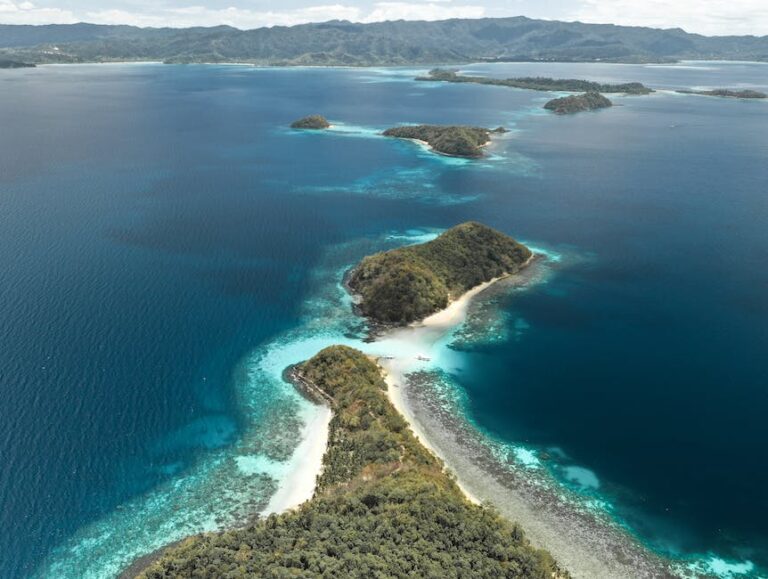Swimming with Giants: An Unforgettable Whale Watching Experience in Tonga
Welcome to Tonga’s whale watching season! One of the most amazing experiences you can have in Tonga is swimming with humpback whales in their natural habitat. Between July and October, Tonga welcomes these gentle giants to its warm waters, giving visitors a once-in-a-lifetime opportunity to get up close and personal with these majestic creatures.
Whale watching tours are becoming increasingly popular with tourists, and with good reason. Tonga has some of the best whale watching experiences in the world, and it’s not hard to see why. With crystal-clear waters and a pristine environment, Tonga is the perfect location for these incredible animals to mate and give birth.
Every year, thousands of humpback whales migrate to Tonga’s waters to mate and give birth. During this time, they are curious and comfortable around humans, making it a perfect opportunity for visitors to observe them in their natural habitat. Not only is whale watching an exhilarating adventure, but it is also a unique opportunity to learn about these beautiful creatures and their importance in our ecosystem.
Why Tonga is the Perfect Place for Whale Watching
Tonga is the perfect place for whale watching for numerous reasons. Firstly, Tonga is one of the few places in the world where you can get up close and personal with humpback whales in their natural habitat. It is home to the longest running whale watching industry, with over 30 years of experience in conducting tours.
Secondly, Tonga has a unique relationship with the humpback whales. These creatures have come to recognize the boats and the humans that interact with them, and as a result, they are very friendly and approachable. This has made it possible for tourists to have an intimate experience with the whales.
Thirdly, the waters in Tonga are crystal-clear, making it easy to spot the whales and witness their magnificent behavior. The contrasting colors of the deep ocean and the white sandy seafloor make the perfect backdrop for this experience.
Lastly, Tonga offers privacy in whale watching. The islands of Tonga are not heavily populated, and the whale watching sites are not crowded. This means that each group of visitors can have a personal experience with the whales without being interrupted by other boats.
The Best Time of Year to Spot Humpback Whales in Tonga
The best time to spot humpback whales in Tonga is between July and October. During these months, the whales migrate to Tonga to mate and give birth in the warm waters surrounding the islands. This is the best time to observe the whales as they are curious and comfortable around humans.
The peak whale watching season in Tonga begins in July when the first whales arrive. However, it’s not until August and September that the population of whales really peaks. At this time, you are likely to see many groups of whales that include males, females and their calves.
If you want to experience the best of Tonga’s whale watching season, it’s recommended that you visit between September and October. During this time, the whales are most active, and there is a higher chance of spotting breaches, tail slaps, and other playful behaviors.
Overall, Tonga’s whale watching season is a magical time of year. With the right planning, you can have an unforgettable experience swimming with these giant creatures, observing their fascinating behavior and learning about their significance in our ecosystem. So why not book your trip to Tonga today?
A Once in a Lifetime Experience: Swimming with Whales
Swimming with whales in Tonga is a once in a lifetime experience. It will leave you with memories that will last forever. There are few things in life that can compare to swimming alongside these gentle giants in their natural habitat.
Swimming with whales is a unique and special experience but it’s important to remember that we are guests in their home. We must respect their space and follow the rules and guidelines set by the tour operators which include maintaining a safe distance from the whales and not disturbing their natural behavior.
If you’re planning to swim with whales in Tonga, you must be a confident swimmer and be able to swim long distances. Once you are in the water, the whales can approach you from any direction, and it’s essential that you remain calm, quiet and still in order to avoid disturbing them.
Swimming with whales is a safe activity but it’s important to take precautions. Ensure that you have the right gear, including a wetsuit and snorkel mask, and that you listen carefully to the instructions given by your guide. It’s also recommended to bring an underwater camera to capture your amazing experience.
Swimming with humpback whales in Tonga is a truly unique and unforgettable experience. It provides a rare opportunity to connect with these magnificent creatures, to experience their grace and intelligence, and to gain a deeper appreciation of their place in our ecosystem.
Preparing for Your Whale Watching Tour in Tonga
Preparing for your whale watching tour in Tonga is an essential part of ensuring that you have a safe and enjoyable experience. Here are a few things to keep in mind as you plan your whale watching adventures:
-
Choose a reputable tour operator: Before booking your tour with any operator, do some research and read reviews. Tonga has strict regulations governing whale watching to protect the animals and ensure the safety of visitors. Look for operators that adhere to these rules and have a good reputation.
-
Book Early: Whale watching tours in Tonga are extremely popular, especially during the peak season. It’s advisable to book early to secure your spot, especially if you have specific preferences such as a specific date or type of tour.
-
Pack appropriate gear: Tonga is hot and humid during the whale watching season, so it’s recommended to bring lightweight clothing, a swimsuit, a wetsuit, and snorkel gear. Don’t forget to bring sunscreen, a hat, sunglasses, and a reusable water bottle.
-
Be prepared for the unexpected: Weather and sea conditions can be unpredictable in Tonga. It’s important to be flexible and prepared for changes to your itinerary due to adverse weather conditions.
Overall, whale watching in Tonga is an amazing experience that should not be missed. By following these simple guidelines, you can ensure that you have a safe and enjoyable adventure observing these majestic creatures in their natural habitat.
What to Expect During Your Whale Watching Tour
During your whale watching tour in Tonga, you can expect an unforgettable adventure that will leave you mesmerized. Your tour will typically last around 4-5 hours and will include snorkeling equipment, wetsuits, and a safety briefing.
Once you are out on the water, your guide will take you to the most popular spots for whale sightings. The whales can approach your boat, and if they are comfortable, you may have the opportunity to get in the water and swim with them.
During the tour, your guide will provide you with interesting information about the whales’ behavior, characteristics, and habitat. You’ll learn about their social structure, migration patterns, and the significance of their presence in Tonga’s ecosystem.
It’s important to remember that the welfare of the whales is the top priority. Your guide will provide instructions on how to approach and observe these magnificent creatures respectfully.
Overall, a whale watching tour in Tonga is an extraordinary experience, providing an up-close and personal encounter with some of the most magnificent creatures on our planet.
Ecotourism and Conservation Efforts in Tonga’s Whale Watching Industry
Tonga’s whale watching industry is built on ecotourism and conservation efforts. The Tongan government has strict guidelines in place to protect the welfare of the whales and their natural habitat, and the industry adheres to these regulations.
The industry is committed to providing sustainable, environmentally friendly, and educational whale watching tours. This means that operators must follow strict rules to ensure that they do not disturb the whales’ behavior, that they keep a safe distance from the animals, and that they use eco-friendly and low-impact methods of operation.
Tourists also play a vital role in the conservation efforts. Visitors are encouraged to practice responsible tourism by following the guidelines set by the operators and being considerate of the environment. This includes avoiding littering, following the “leave no trace” principle, and respecting the natural habitat of the whales.
In addition, the industry actively contributes to the study and research of humpback whales. Researchers often accompany tours to study the whales’ behavior and movements. The information gathered from this research is used to develop conservation strategies to protect the humpback whale population.
In conclusion, Tonga’s whale watching industry is an excellent example of ecotourism in action, showcasing the importance of sustainable tourism and the role we all play in preserving our planet’s natural beauty and resources.







